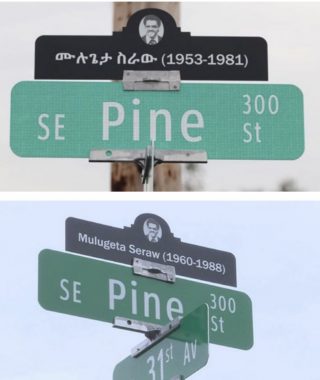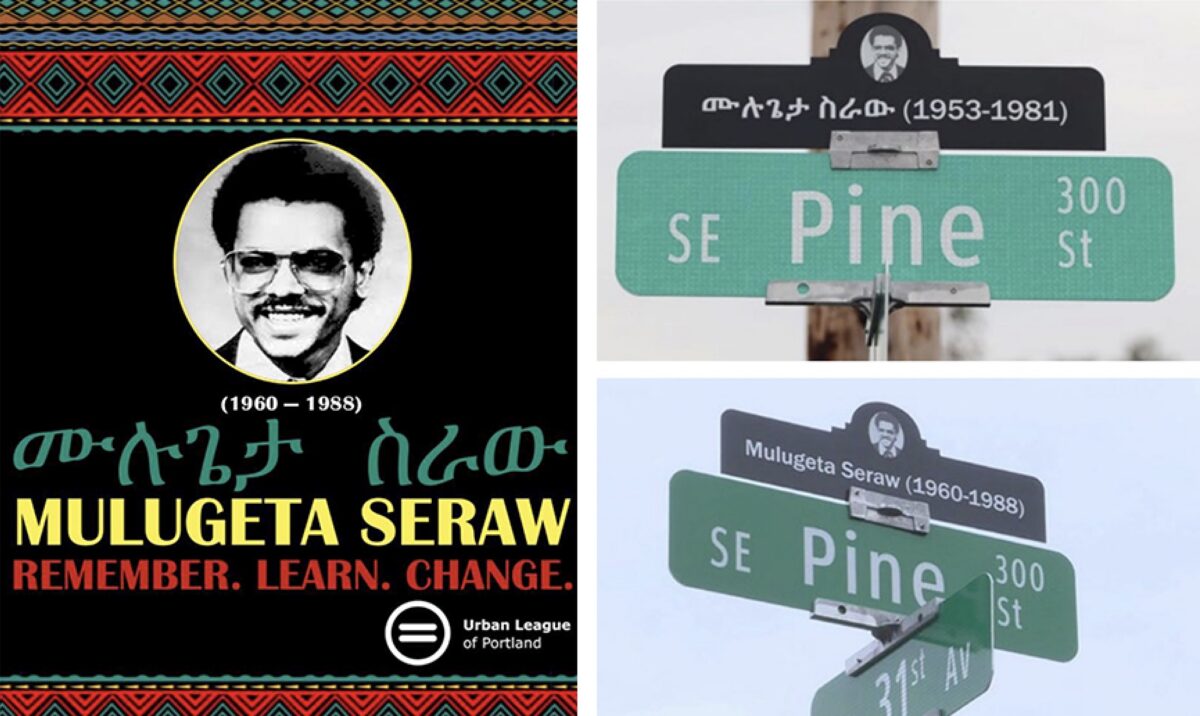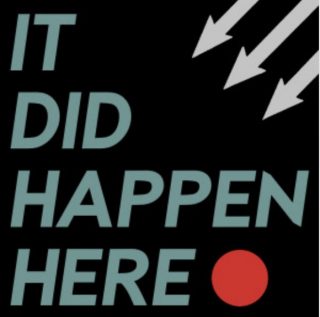My journey toward understanding racism in Portland and the impact my whiteness has had on myself and others has taken a big turn in the past few weeks. This is because I finally took the time to listen to It Did Happen Here, an excellent podcast I highly recommend.
Hosted and co-produced by Mic Crenshaw and Celina Flores along with Executive Producer Erin Yanke in partnership with KBOO-FM, this podcast has opened my eyes to a chapter in Portland’s history that I’m ashamed to have not previously known more about.
It Did Happen Here exposes the jarring underbelly of Portland years before neighborhood gentrification and the “Portlandia” image took over. It tells the story of the rise in white supremacist and neo-Nazi groups — and how a dedicated group of anti-racists and anti-facists stepped up to push them out of town. The episode on the brutal beating and killing of 28-year-old Ethiopian Mulugeta Seraw in 1988 on the corner of Southeast 31st and Pine by three young white racists was especially eye-opening. I also love the parts where organizers and activists share their experiences, thoughts and methods for countering racists.
Advertisement
Here’s more about the show from the official website:
Skinheads had always been part of the local punk scene. In the late 1980s, punks and skins started being recruited by national white supremacist organizations, and that organizing work took off.
Portland became known as skin city. Racist skinheads roamed Portland , in groups, looking for victims and fights. Late one night in 1988 a group of Ethiopian friends were attacked in front of their apartment building in Southeast Portland. Mulugeta Seraw, a twenty eight year old Portland state student, was beaten with a baseball bat and left for dead. Their attackers were skinheads, members of East Side White Pride, a Neo-nazi street gang.
Following this, disparate groups in Portland came together to organize against this white supremacist threat. Activists started to work with anti-racist skinheads and politicized punks to confront and fight Neo-nazis in the streets and at punk shows.
By the mid 1990s neo-nazi skinheads had disappeared from the streets of Portland.
Advertisement

I thought I understood Portland’s recent history around racism well enough. I’ve read about the history of the Albina neighborhood and Williams Avenue; and I’ve thought a lot about the flooding of Vanport. But I had no idea how prominent racist skinheads were in Portland just 10-15 years before I moved here. I’ve had my head too singularly focused on cycling and transportation.
This stuff matters to everyone involved with bike planning and transportation policy in Portland. This recent racist history has led to an entire generation (and beyond) of Portlanders who are rightfully fearful of being vulnerable in the public right-of-way (in episode three community organizer and racial justice scholar Scot Nakagawa talks about how he was run off the road by neo-Nazis while riding his bike). This podcast has also made it even clearer to me why some Black, indigenous and people of color in Portland harbor distrust, skepticism, and even anger at white people in positions of power who come into situations without the proper amount of humility, respect, and understanding of racial context.
And there are direct connections to today: One of the men convicted in the murder of Mulugeta Seraw, Kyle Brewster, was seen fighting with counter-protestors at the capitol in Salem on January 6th.
As I learn more about this important part of Portland’s not-so-distant past, I’m surprised people in the transportation advocacy/cycling scene don’t talk more about it. No one ever shared this history with me, so I plan to weave it into my work and perspectives going forward to make sure it’s not forgotten. As a white person with a platform in this community, talking and writing about racism is challenging — but it must happen. If we want to change how people feel when they move around streets, we must embrace this dark past when people were terrorized for walking, biking, or simply existing outside their homes, and understand that constant vigilance against white supremacy in all its forms is necessary.
It Did Happen Here launched in November and the latest episode was released this past Friday (January 15th). It’s available on all major podcast platforms and the official site has detailed (and very helpful) show notes.
— Jonathan Maus: (503) 706-8804, @jonathan_maus on Twitter and jonathan@bikeportland.org
— Get our headlines delivered to your inbox.
— Support this independent community media outlet with a one-time contribution or monthly subscription.




